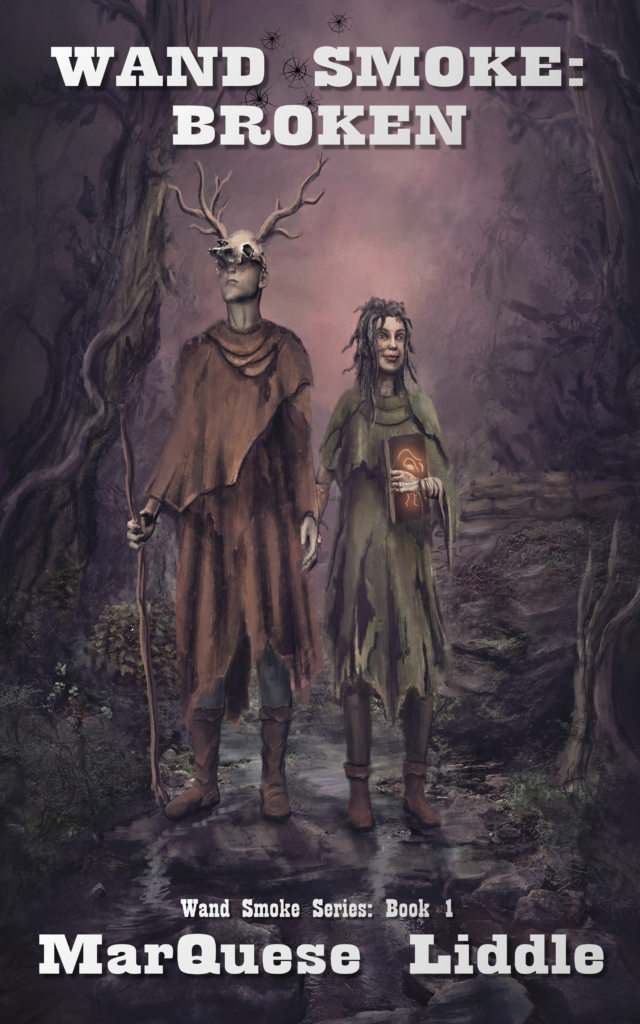

Question 1) When did you first realize you wanted to be a writer?
Answer = I knew in high school, but it wasn’t until half-way through my undergraduate degree that I realized that I couldn’t live with myself if I didn’t pursue my dreams. It was from that point forward that I renewed my courage as to overcome the messaging around me that a career in writing was impossible. Strangely enough, I actually received encouragement after making this decision. It goes to show that we ought not let fear inhibit our endeavors.
Question 2) How many hours a day do you write?
Answer = I try to write fiction for at least two hours a day. I set aside time in the early morning specifically for it. However, I write non-fiction as well (blog posts and other things), though how much time I spend on those is less consistent.
Question 3) What do you like to do when you’re not writing?
Answer = I spend an inordinate amount of time everyday doing promotional work, editing, exercising, reading, or practicing martial arts. When I burn out on these things, usually by the evening, I’ll relax by playing games (mostly RPGs).
Question 4) How do you develop your plot and characters?
Answer = The plot of my stories self-develops from the characters’ motivations. That begs the question, ‘How do I develop my characters?’ I begin with their flaws, weaknesses, fears, and problems. Conflict is the heart of a story, and a story is an example as to how one might overcome (or fail to overcome) a conflict. Once these elements are in place, motivations come automatically, complications arise as explanations as to why the conflict has yet been resolved, obstacles are overcome (or not, in a tragedy), and the plot is born from that.
Question 5) Have you ever killed off a character your readers loved?
Answer = Yes, and one particular reader I know well cried every time I mentioned it for months after.
Question 6) What, to you, are the most important elements of good writing?
Answer = Good writing does two things well: it contains good content and is composed well.
What do I mean? ‘Good content’ refers to proper plot structure. I don’t mean an author needs to be formulaic but that his story needs to contain some kind of conflict, and the resolution to this conflict should be internally coherent with the events of the exposition, rising action, and climax. Such coherence forms a believable, perhaps ‘true’ theme or thesis of the story; and the best themes are generated by the author spontaneously arriving at the conclusion to a problem which he does not already know the answer too.
As for composition, I mean that the prose should not be repugnant to read. For me, that often means rhythmic and melodic, but for others it may mean evoking the proper emotions via connotations (the proper use of diction and syntax, if you will). Nothing is more disheartening than a good story told badly.
Question 7) What are common traps for new authors?
Answer = One of the deadly traps for fiction authors in particular is to start a series of novels with the first being the “exposition” of the over-arching plot that plays out across the series. While this isn’t wrong in principle, it often leads to the first book lacking its own central conflict and therefore plot structure. Such a book reads as a mere series of events, without tension, and puts off readers to the series as a whole (which is a shame, as the rest of the books may very well be appealing).
Question 8) What do the words “writer’s block” mean to you?
Answer = Nothing. I’m very Nietzschean in this view, but I think that writer’s block is nothing more than the result of bad mental and physical hygiene. If you eat, exercise, and rest poorly, you won’t be able to run a marathon. Likewise, if you don’t take care of your body and mind, you’ll find it incapable of creative labor.
Question 9) What do you think is the best way to improve writing skills?
Answer = By writing. The best way to get better is to practice writing. Write something bad, read it, read something good, then figure out why what you wrote was bad. But do not do this one task at a time. Write everyday if you can, even if only a tiny amount. Try to read good books as often as your schedule allows. During down time of other tasks, that’s when you contemplate how your work differs from that which you enjoy or admire. Doing all these things together will surely improve you as a writer.
Question 10) Which of the characters do you relate to the most and why?
Answer = Kashim. He is a fictionalization of my own Spirit of Vengeance as well as the classic heroic ideal I strive to become more like each day. He appeared briefly in my first flop of a novel Salt, Sand, and Blood, but will reappear in the Wand Smoke series in my coming short story collection, Wand Smoke: Tales from the Labyrinth.
Amazon Author Page: MarQuese Liddle